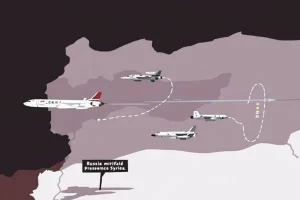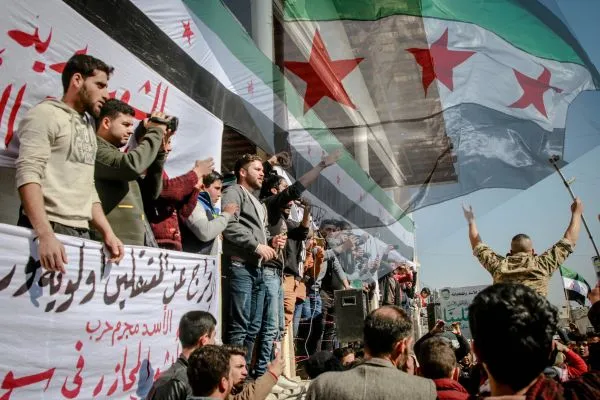In a significant diplomatic move, Russia has sent its first high-level envoy to Damascus since the ousting of Bashar al-Assad, signaling an effort to negotiate the future of its military bases in Syria.
The delegation, led by Deputy Foreign Minister Mikhail Bogdanov, arrived last Tuesday in a convoy of white SUVs, marking the start of discussions with Syria’s interim leadership.
Russia Aims to Maintain Military Presence in Syria
The talks represent a pivotal moment for Russia, which aims to preserve its strategic military installations in the country despite the collapse of its long-time ally’s regime.
At the heart of these negotiations is Russia’s desire to maintain its naval base at Tartus and the Hmeimim Air Base near Latakia—key assets that bolster Moscow’s influence in the Mediterranean and facilitate operations in Africa.
Awaiting the Russian delegation was Ahmed al-Shara, Syria’s new interim leader, who survived years of conflict marked by relentless Russian airstrikes supporting Assad’s rule. Al-Shara, now tasked with steering postwar Syria, emphasized the need for any renewed relations with Russia to address past grievances.
In a statement, his government called for compensation for the destruction caused by Russian military actions and demanded the extradition of Assad and his top aides to face justice—a request that aligns with the broader push for accountability among Syrians.
Despite these demands, al-Shara has shown surprising flexibility toward Russia compared to Iran, Assad’s other key backer, which Damascus has signaled is no longer welcome.
Highlighting Syria’s pragmatic approach, al-Shara noted the longstanding ties between Moscow and Damascus, including decades of arms supplies and technical expertise critical to Syria’s infrastructure. Analysts suggest this openness reflects Syria’s desperation for international legitimacy and support as it begins rebuilding from the ashes of a nearly 14-year civil war.
For Russia, retaining its presence in Syria offers both strategic advantages and challenges. While losing Assad marks a setback, President Vladimir Putin framed the outcome as a victory, claiming Moscow prevented Syria from becoming a terrorist haven.

However, analysts describe Russia’s pivot toward engaging the new Syrian leadership as “improvised opportunism,” highlighting the Kremlin’s adaptability in navigating shifting geopolitical landscapes.
The negotiations are unlikely to yield immediate results, as both sides appear cautious about rushing into decisions. For Damascus, delaying commitments allows time to consolidate domestic control and secure sanctions relief from Western powers.
Meanwhile, Moscow benefits from maintaining its image as a steadfast player in the region while exploring alternative options, such as potential basing agreements in Libya.
As world powers jockey for influence in post-conflict Syria, the dialogue between Russia and Damascus underscores the delicate balance of realpolitik shaping the Middle East’s future. With European nations opposing continued Russian military presence and Washington’s stance remaining unclear, the fate of Russia’s bases—and its role in Syria—remains uncertain but crucial to regional dynamics.







